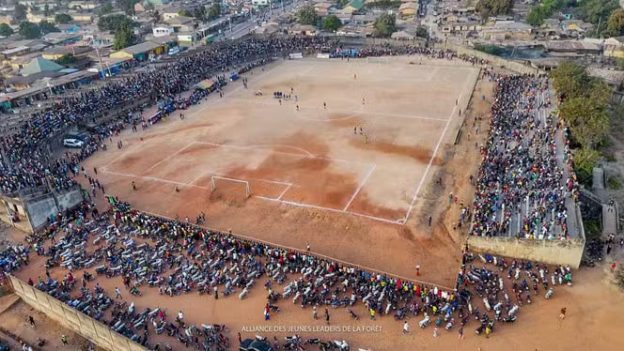
What was meant to be a celebratory football match in the Guinean city of N’zérékoré ended in catastrophe, leaving at least ten people dead, including children, and many more injured.
The match, part of a tournament in support of the junta, spiraled into chaos following controversial refereeing decisions that enraged spectators. Clashes broke out after several refereeing decisions angered fans. What began as protests quickly escalated into violent confrontations. Stone-throwing ensued, forcing security forces to intervene using tear gas in an attempt to secure the officials’ retreat.
The use of tear gas had devastating consequences. Panic swept through the crowd as the stadium exits were blocked by enraged spectators. Some attendees succumbed to tear gas inhalation, while others were killed or injured while attempting to scale the walls to escape. Adding to the tragedy, reports of sexual violence emerged amid the chaos.
A Nation in Mourning
This tragic incident highlights the dire consequences of unpreparedness and lack of crowd control in large public events. Families are left grieving, and the nation is grappling with yet another devastating event tied to political and social tensions.
The Guinean government faces mounting pressure to investigate the circumstances surrounding the tragedy and hold those responsible accountable. Many are questioning the wisdom of organizing a tournament tied to political propaganda, especially in a region where tensions are already high.
This tragedy is a somber reminder of the power of sports to unite—but also to divide—when political and social factors overshadow the game.


